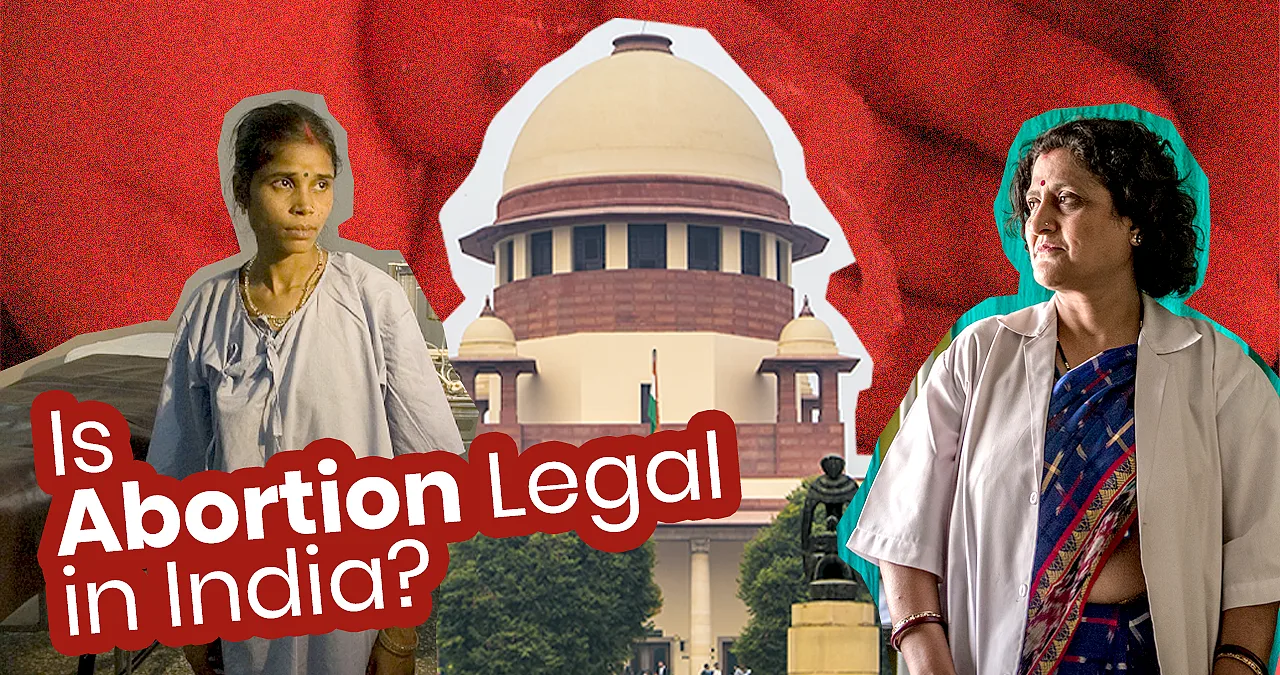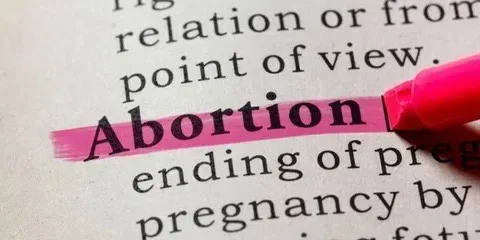Is abortion legal in India? Learn about the MTP Act, abortion rights after 18, consent rules, privacy protection, and why the final decision should always be yours.

In a nutshell, yes, abortion is legal in India, but only on certain grounds. Keep reading to know all about it.
The Medical Termination of Pregnancy Act of 1971 permits abortions in India. If a pregnancy is shorter than 20 weeks (4.6 months), a registered medical professional’s opinion is necessary; however, if it is between 20 to 24 weeks, two qualified medical professionals’ opinions are needed. Before a doctor is legally permitted to conduct an abortion, they must determine whether these requirements are met; if not, it is considered a crime to perform the abortion.
Abortions are a way of safely ending a pregnancy, using medications or a minor surgery, the choice of which can be determined based on the condition of your health and the length of the pregnancy.
 Try This Sugar Patient Diet Chart for Stress Free Life in 2025. →
Try This Sugar Patient Diet Chart for Stress Free Life in 2025. →The 2 types of abortions available in India are elaborated below:
- Medical abortion: for convenience, medical abortions can be performed at your home just by using medications prescribed by your doctor. The process may cause cramping and bleeding similar to a heavy menstrual cycle, and is ideal for pregnancies of less than 9 weeks.
- Surgical abortion: Surgical abortions are similar to a small operation carried out in a clinic by a licensed OB-GYN. Although there may be some cramps or spotting thereafter, it normally takes 15 to 20 minutes to complete the process, and recovery is rather rapid. This method is recommended after 9 weeks of pregnancy or if the medical abortion was not successful.
Your doctor will help pick the safest option for you.
If you’re wondering “Is abortion legal in India?”, rest assured that both medical and surgical abortions are legally permitted under the MTP Act, depending on your circumstances and weeks of pregnancy.
As per Section 3 of the Medical Termination of Pregnancy Act of 1971, a doctor may only perform an abortion in the event of the following circumstances:
One of the main reasons women ask- “Is abortion legal in India?” is because the Act allows it under specific conditions like risk to life, health, or fetal abnormalities.
- If the pregnancy might negatively impact your life, bodily health, or mental well-being. To determine if such a situation may arise, the doctor will need to consider your specific situation. To determine the effects of the pregnancy, they must also consider your future, just like any other sensible person would.
- If there is a significant likelihood of the child developing mental or physical defects that will cause them to be severely disabled.
Do the doctors need your consent to carry out an abortion?
When it comes to abortion in India, consent is a crucial requirement under the law. Many women still ask, “Is abortion legal in India?, especially without parental or partner approval?” The answer is yes-if you’re above 18, your consent is the only one that’s required. It is the doctors’ responsibility to obtain your consent before performing an abortion. If you are under the age of eighteen (a minor) or are mentally challenged, doctors are also required to obtain consent from your guardian(s). A physician who performs an abortion on you without your consent faces a maximum 10-year jail sentence and a fine.

Abortion is Legal, Gender Selection is Not
To your question: “Is abortion legal in India?” We have already established that yes, it is. However, getting an abortion because you or your family do not want a girl child is illegal. Depending on the stage of pregnancy, you may face up to three or seven years in prison if you have an abortion after learning the sex of the fetus (Section 312 IPC 1860). However, know that abortion is otherwise legal in other circumstances; abortion that is performed following sex-determination is illegal.
Women’s privacy protection
In India people often take an interest in others’ business, and a sensitive topic like abortion is still considered taboo in some areas, so, if you’re concerned about the confidentiality of your abortion or someone finding out, you can rest assured it will remain private, the Medical Termination of Pregnancy (Amendment) Bill makes sure of it.
1.The identity and other details of a woman whose pregnancy has been terminated under this Act may not be disclosed by any registered medical professional to anybody other than those permitted under currently enacted legislation.
2. If someone violates the terms of sub-section (1), they could face up to a year in prison, a fine, or both, depending on the regulations and the particular circumstances.
Clearing the air regarding some myths about having an abortion:
Myth- Abortion causes infertility. If you have an abortion, it’s hard to get pregnant again in the future.
Fact- Abortions do not cause infertility or negatively affect future fertility. A woman can actually get pregnant immediately after having an abortion. Contrary to this myth, women who are denied abortion are more likely to have poor living conditions and consequently have their child lead the same life. To enable women and the new ones they create, have a better quality of life, it is important to enable women to postpone childbearing or not have it at all if they choose so.
Myth- Abortions are risky enough that you should continue a risky pregnancy and carry the pregnancy to term.
Fact: A doctor will only recommend a fetal abortion if it is in the best interests of both the mother and the fetus. Contrary to medical advice, carrying a risky pregnancy to term may be riskier than having an abortion. Once more, abortions are only safe when carried out by trained medical professionals at a hospital that is safe for expectant mothers.
Myth: Abortion is a form of birth control.
Fact: Birth control is a measure taken to avoid getting pregnant in the first place. Abortion is the step you take after a pregnancy has already occurred, and you need to end it, usually when continuing the pregnancy poses risks to the health of the mother or the baby, or when other serious circumstances arise.
How Access to Abortion Differs Across States
States like Kerala and Tamil Nadu have more progressive laws and easier access to services, even though the Medical Termination of Pregnancy (MTP) Act is applicable nationwide. On the other hand, the absence of authorised facilities and enduring social and cultural stigma in rural areas of states like Uttar Pradesh pose serious obstacles, making it hard for women to obtain safe and legal abortions.
Is abortion legal in India: F.A.Q
Q. Is abortion legal in India? (In 2025)
Ans. Yes, abortion is legal in India under the Medical Termination of Pregnancy (MTP) Act, with certain conditions depending on gestational age, medical reasons, and consent rules.
Q. Can abortion be denied to me if my contraceptives did not work properly?
Ans. If you decided not to have (any more) children, and contraceptives did not work, you should be rightfully able to seek an abortion. In such situations, the doctor is legally required to presume that the pregnancy has a serious negative impact on your mental health.
Q. Can I use abortion pills without consulting a doctor?
Ans. No, it is illegal and potentially harmful to self-administer abortion drugs.
Q. Will I regret having an abortion in the future?
Ans. If you fear you’ll regret your decision in the future, here’s something to calm your mind:
In a survey conducted among women five years after having an abortion, more than 95% said they had made the right decision.
And no, if you are above 18, you do not need anyone’s approval to have an abortion- not your partner’s, not your in-laws’, and definitely not the society everyone seems so desperate to please. If you know in your gut that it is the right decision for you and you have the right intentions in mind, you should not think twice about what anyone else has to say on the matter. The decision should be solely yours; it’s your body, after all.
Don’t forget, abortion is a common and safe medical practice, and is legal in India. Every year, thousands of Indian women obtain safe abortions thanks to the country’s abortion legislation. You have every right to compassionate, stigma-free healthcare, because it’s your body and your choice.
Stay informed, follow your gut, and don’t be afraid to ask for help.



